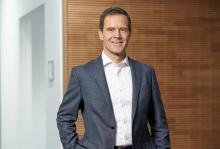
“We are honoured to be included in CDP’s Climate A List and to be recognised for our efforts in decarbonisation. This also demonstrates our leadership in the industry – both in breakthrough technologies such as carbon capture, utilisation, and storage and when it comes to sustainable products. We will continue to drive the transition to low-carbon construction,” says Dr Nicola Kimm, Chief Sustainability Officer and Member of the Managing Board of Heidelberg Materials. “CDP plays an important role in the steering of best-in-class developments for transparent reporting, tracking of progress, and managing climate risks and opportunities.”
Heidelberg Materials follows a clear, science-based approach to reduce its carbon footprint through the levers of product and process innovation as well as industrial-scale carbon capture, utilisation, and storage (CCUS). With the CCUS projects already launched, the company aims to save 10 million tonnes of CO₂ cumulatively by 2030. Heidelberg Materials has also recently introduced evoZero, the world’s first carbon-captured net-zero cement and its global evoBuild brand for sustainable products.

The Sustainability Commitments 2030 are the guiding principles of the company’s sustainability efforts. They reflect a holistic view of sustainability and feature a strong, comprehensive set of ESG targets, covering climate protection and topics such as circularity, nature conservation, water management, and resource efficiency.
Based on the data reported through CDP’s 2023 Climate Change questionnaire, Heidelberg Materials is one of 346 companies that achieved an A out of over 21,000 companies scored. CDP’s methodology allocates a score of A to D- to participating companies based on the comprehensiveness of disclosure, awareness and management of environmental risks, and demonstration of best practices associated with environmental leadership, such as setting ambitious and meaningful targets.
Sherry Madera, CEO of CDP: “Earning a place on the A-List is about more than the score. It’s an indication of high quality, complete data that equips companies with a holistic view of their environmental impact, serves as a baseline for transition plans and – crucially – enables them to follow through on their ambitions.”
CDP holds the largest environmental database in the world and is fully aligned with the Task Force on Climate-Related Financial Disclosures (TCFD). Companies that disclose through CDP are doing so in line with the TCFD recommendations comparably and consistently that are accessible to the global economy. CDP scores are widely used to drive investment and procurement decisions towards a zero carbon, sustainable, and resilient economy.
The full list of companies that made this year’s CDP A List is available here: https://www.cdp.net/en/companies/companies-scores









